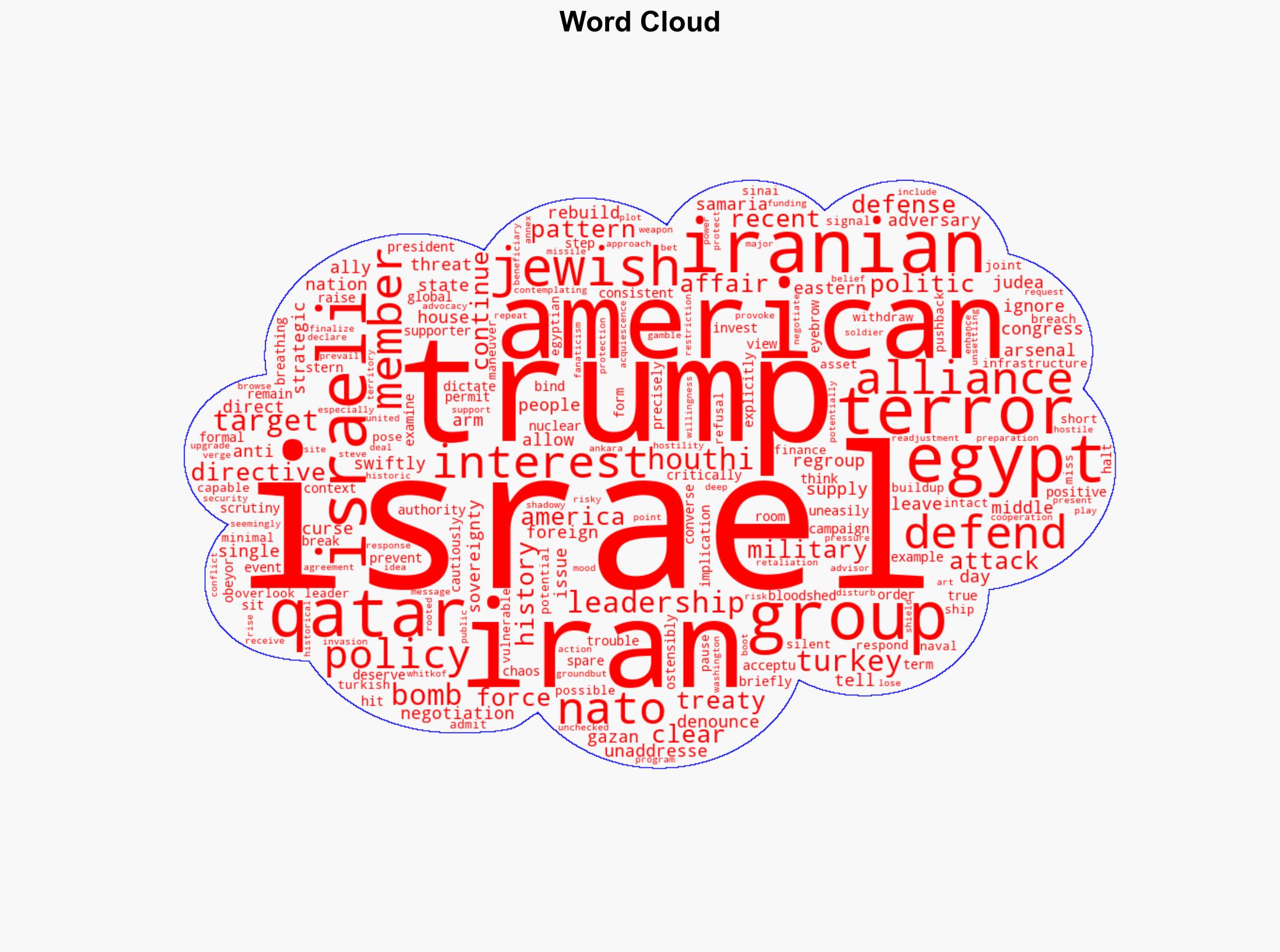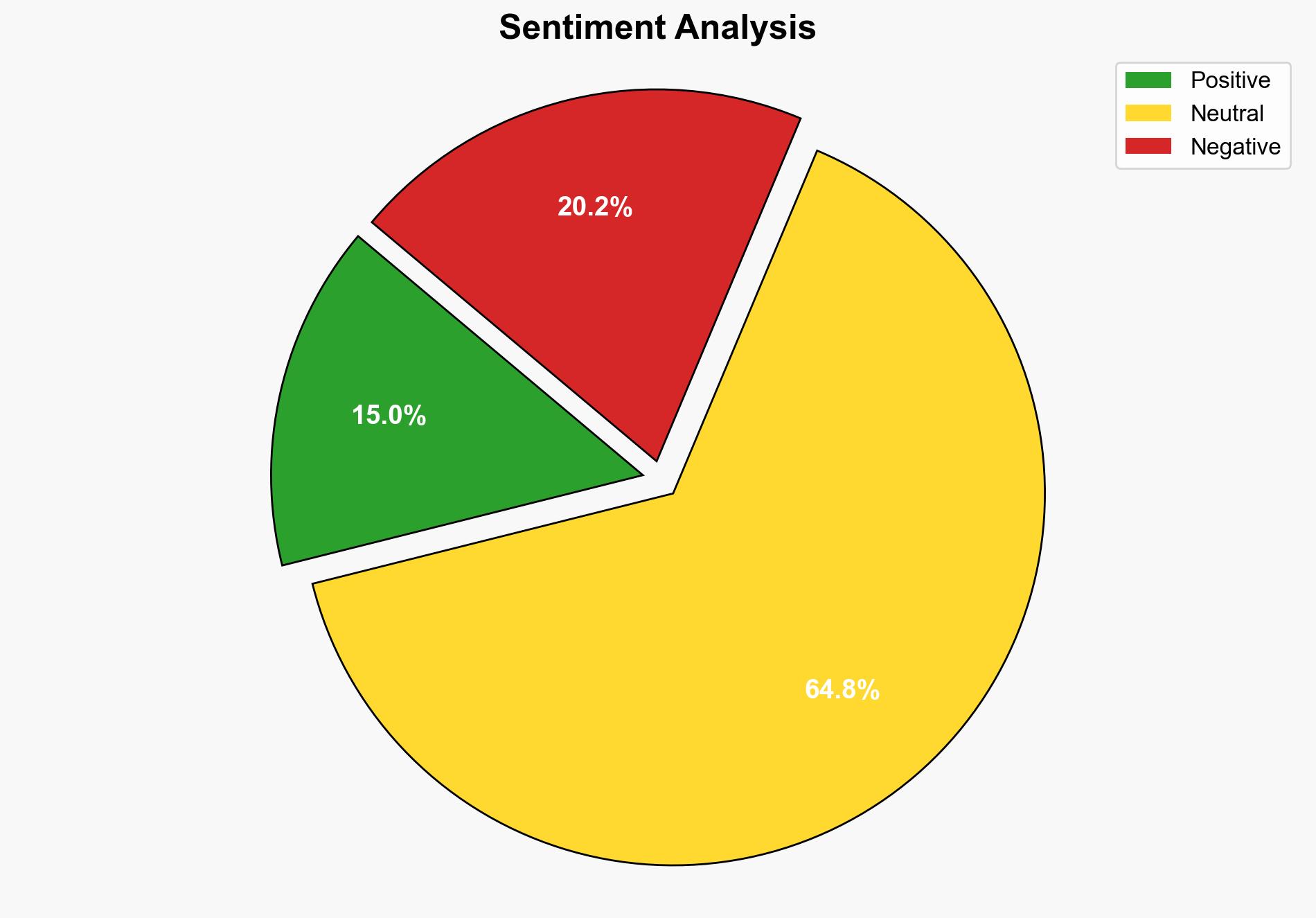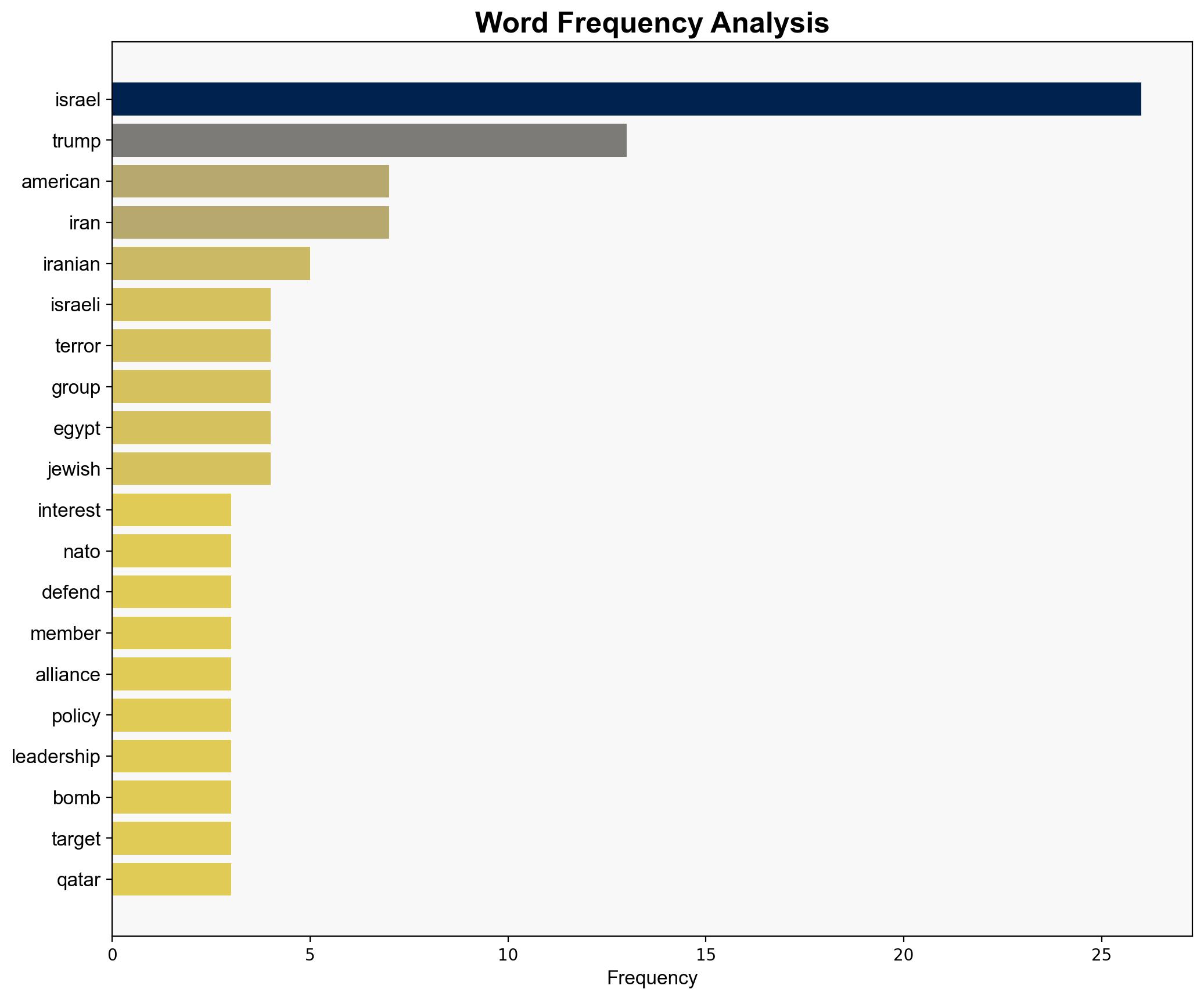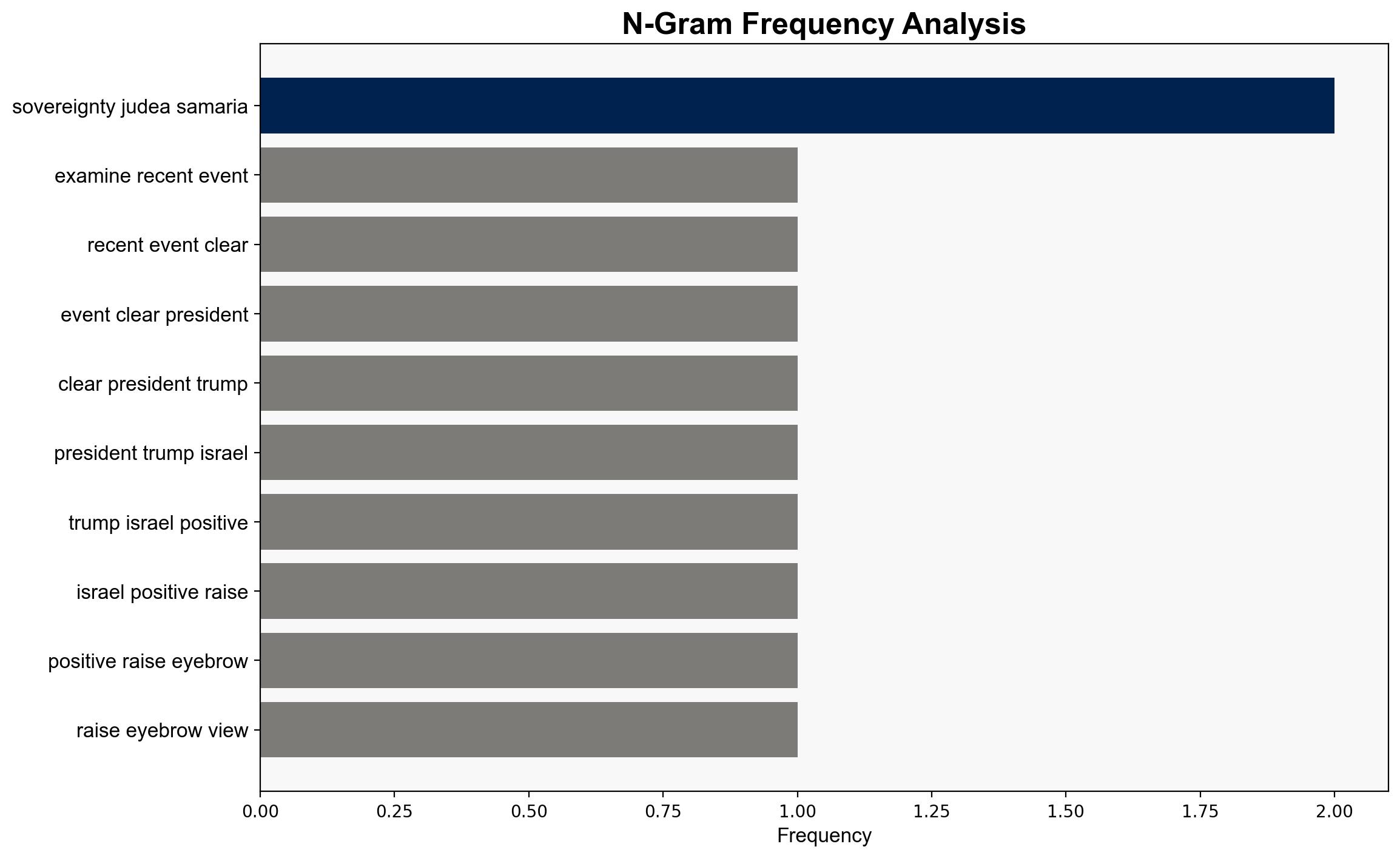Trumps Israel Policy feels off – Israelnationalnews.com
Published on: 2025-09-28
Intelligence Report: Trumps Israel Policy feels off – Israelnationalnews.com
1. BLUF (Bottom Line Up Front)
The analysis suggests a strategic shift in U.S. policy towards Israel under Trump’s administration, potentially prioritizing broader Middle Eastern alliances over traditional support for Israel. The most supported hypothesis is that this shift is a calculated strategy to balance regional powers, with a moderate confidence level. Recommended action includes diplomatic engagement to clarify U.S. intentions and reinforce bilateral commitments.
2. Competing Hypotheses
Hypothesis 1: The U.S. is deliberately recalibrating its Middle Eastern strategy to reduce direct involvement and encourage regional powers to assume greater responsibility, thus explaining the perceived reduction in support for Israel.
Hypothesis 2: The policy shift is unintentional, resulting from internal disarray within the U.S. administration and inconsistent policy directives, leading to mixed signals regarding support for Israel.
Structured Analytic Technique: Using Analysis of Competing Hypotheses (ACH), Hypothesis 1 is better supported due to consistent patterns of U.S. engagement with other regional powers like Turkey and Qatar, suggesting a strategic realignment rather than mere administrative inconsistency.
3. Key Assumptions and Red Flags
– Assumption: The U.S. aims to maintain regional stability by balancing power dynamics, which may involve reducing overt support for Israel.
– Red Flag: Lack of clear communication from the U.S. administration could indicate either strategic ambiguity or internal policy discord.
– Blind Spot: Potential underestimation of Israel’s response to perceived abandonment, which could lead to unilateral actions.
4. Implications and Strategic Risks
– The shift could embolden adversaries like Iran, increasing regional instability and threats to Israel.
– Potential for increased Israeli unilateral military actions if perceived U.S. support wanes, risking broader conflict.
– Economic implications include potential shifts in defense spending and alliances, affecting regional markets.
– Cybersecurity risks may rise as regional tensions increase, with potential for cyber-attacks targeting critical infrastructure.
5. Recommendations and Outlook
- Engage in high-level diplomatic talks with the U.S. to clarify policy intentions and reinforce commitments to Israel.
- Encourage regional dialogue to mitigate tensions and prevent escalation.
- Scenario Projections:
- Best Case: U.S. clarifies its strategic intentions, reinforcing support for Israel while balancing regional powers.
- Worst Case: Miscommunication leads to Israeli unilateral action, escalating regional conflict.
- Most Likely: Continued ambiguity with sporadic U.S. engagement, requiring Israel to adjust its defense strategies independently.
6. Key Individuals and Entities
– Donald Trump
– Steve Whitkof
– Iranian leadership
– Qatari government
7. Thematic Tags
national security threats, cybersecurity, counter-terrorism, regional focus




